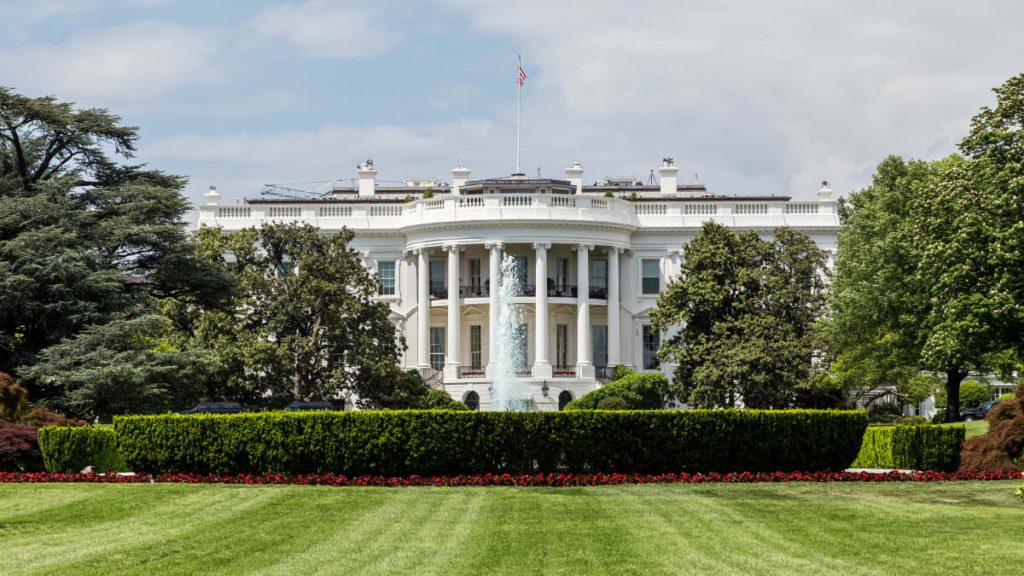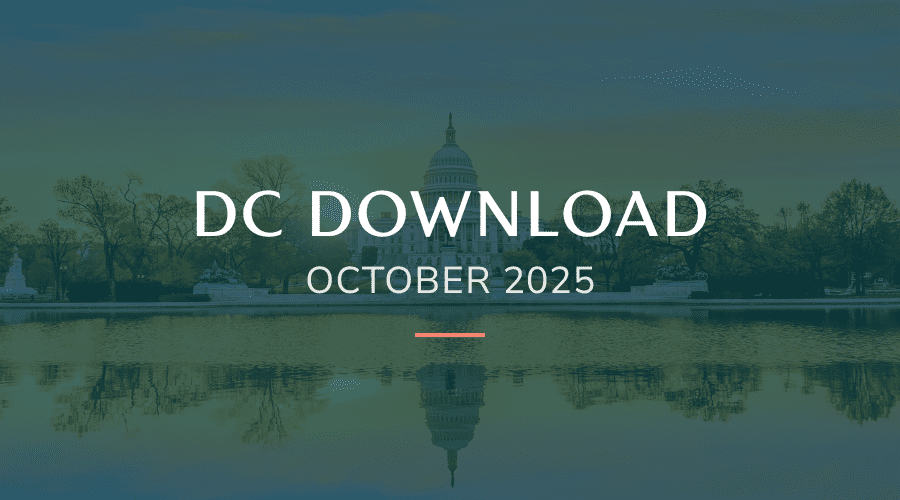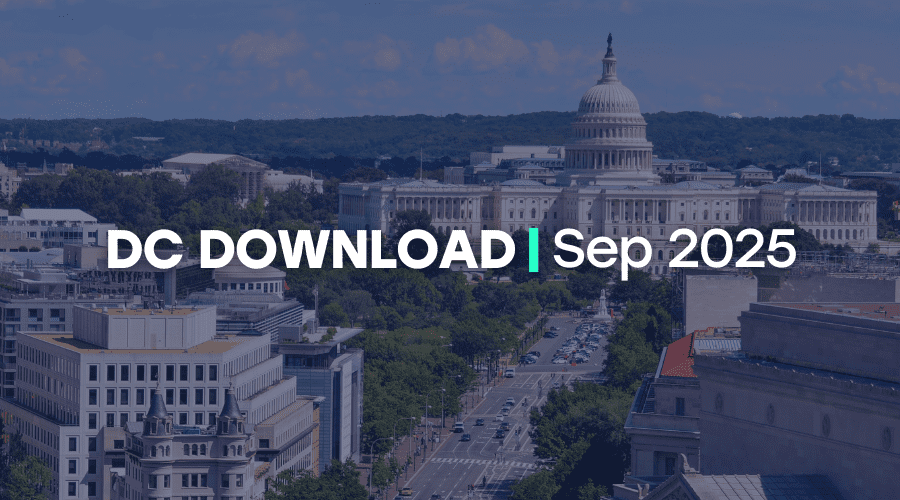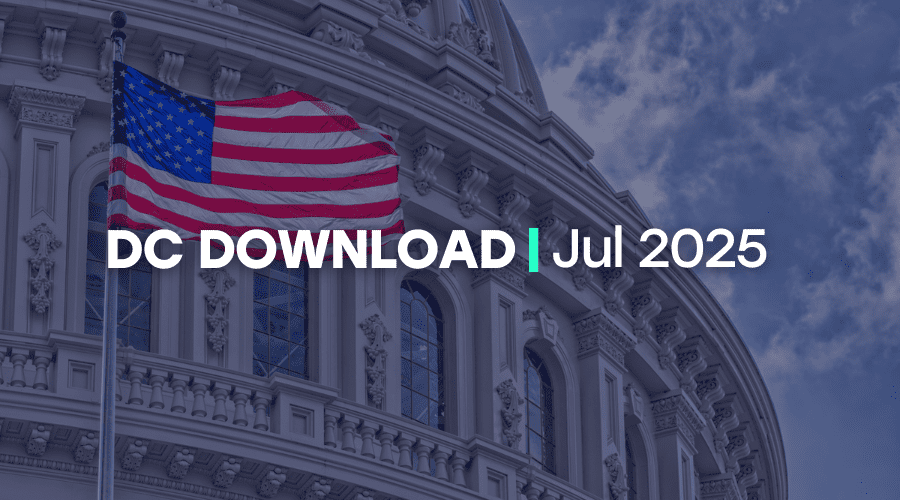The roof is on fire, or should I say the debt ceiling? Welcome to the May edition of the DC Download. Negotiators on both sides of the aisle are working under pressure to secure a debt ceiling deal ahead of the upcoming deadline on June 1. If you have been busy making plans for Memorial Day weekend or trying to keep calm ahead of a potential U.S. default. Fear not, here is a download of issues in Washington, DC affecting nonprofits:
Legislative Outlook
At the end of last week, House Republican negotiators indicated they were closing in on a deal with the White House to raise the debt ceiling ahead of the potential June 1 deadline. Concessions to Republicans to include spending caps, energy permitting, rescinding COVID-19 relief funds, and work requirements for federal programs. Conservative Republicans are the most insistent on spending cuts as a “red line,” while Democrats are wary of work requirements. Speaker McCarthy and President Biden are weighing compromises that would likely result in losing the votes of both hard leftists and conservatives in Congress, meaning they would need to assemble a coalition of Republicans and centrist Democrats to back any final deal to avert a default.
The House adjourned on Thursday last week for the Memorial Day holiday, the Speaker has promised lawmakers at least 72 –hours to review any legislation and 24 hours’ notice to return to Washington if a deal was struck, prompting speculation that the House could be back this week.
Charitable Giving Bill Introduced in the House
On May 17, Representatives Blake Moore (R-UT), Danny Davis (D-IL), Michelle Steel (R-CA), and Chris Pappas (D-NH) introduced the Charitable Act (H.R. 3435). The bill would allow nonitemizers that donate to the charities of their choice to deduct from their taxes up to one-third of the standard deduction (around $4,600 for an individual filer and around $9,200 for married joint filers) for years 2023 and 2024.
This legislation would expand and extend the expired $300 charitable deduction established by Congress in 2020. The Ssenate version of this bill was introduced earlier this year in March by Sens. James Lankford (R-OK) and Chris Coons (D-DE).
Independent Sector research indicates that this legislation could generate $17 billion in additional giving per year, and increase the number of donors, while garnering the support of 77% of registered voters.
Take a moment to tell your legislators to cosponsor the Charitable Act.
Bill to Strengthen the Nonprofit Sector Introduced
On May, 12, Representatives Nancy Mace (R-SC) and Betty McCollum (D-MN) introduced the Nonprofit Stakeholders Engaging and Advancing Together (Nonprofit SEAT) Act (H.R. 3245). The bill would create mechanisms that leverage the mission, knowledge, and impact of nonprofits to help government and the sector work together more effectively in pursuit of shared goals. It calls for the release of quarterly economic data on the nonprofit sector in the same way as other industries, reducing paperwork for nonprofits to register and fundraise in multiple states, increasing access to national service, streamlining federal grant processes, and recommending clearer rules on nonprofit civic engagement.
The Nonprofit SEAT Act represents an important step towards advancing and strengthening the nonprofit sector. This legislation enables nonprofits to contribute their expertise to shape the policies that impact them and their communities. You can learn more about the bill on the IS resource page.
Take a moment to sign your organization onto a letter of support for the Nonprofit SEAT Act to be shared with Congress.
Volunteer Milage Bill Introduced in the House
On April 28, Representatives Pete Stauber (R-MN) and Angie Craig (D-MN) introduced the Volunteer Driver Tax Appreciation Act (H.R. 3032). This bill would increase the federal tax deduction mileage rate for volunteer drivers from its current rate, 14 cents per mile, to be equal to the Internal Revenue Service (IRS) business rate, currently set at 65.5 cents per mile, provided that the volunteer is transporting people or property on behalf of a charity.
Independent Sector supports this legislation and believes that volunteers are the lifeblood of nonprofits. They provide proactive leadership, deliver essential services, and expand the impact of nonprofit missions.
Senate Hearing on Improvinge Access to Federal Grants for Underserved Communities
On May 2, the Senate Homeland Security and Governmental Affairs Committee held a hearing on “Improving Access to Federal Grants for Underserved Communities”. In his opening remarks Committee Chairman Gary Peters (D-MI) emphasized the enormous impact of federal grants. Over $1 trillion in federal grant money was awarded last year to 131,000 recipient organizations by over 50 different federal agencies. There are over 1,900 grant programs with their own application procedures, portals and technical assistance capabilities, and award processes.
The witnesses outlined the challenges in the grant-making process, including limited human capital, organizational and financial capacity, and recommended solutions such as technical assistance and the need for streamlining the application process. They also suggested enhancing flexibility in federal grants, clarity around grant expectations, and creating a grant Helpdesk for pre- and post-award support.
Senators on the committee raised questions about the grants.gov portal, underperforming states in federal grant dollars per capita, challenges facing rural and Black communities in accessing federal grants, and the need for greater racial equity in grant awards.
Ana Montañez is Manager, Government Relations at Independent Sector.



